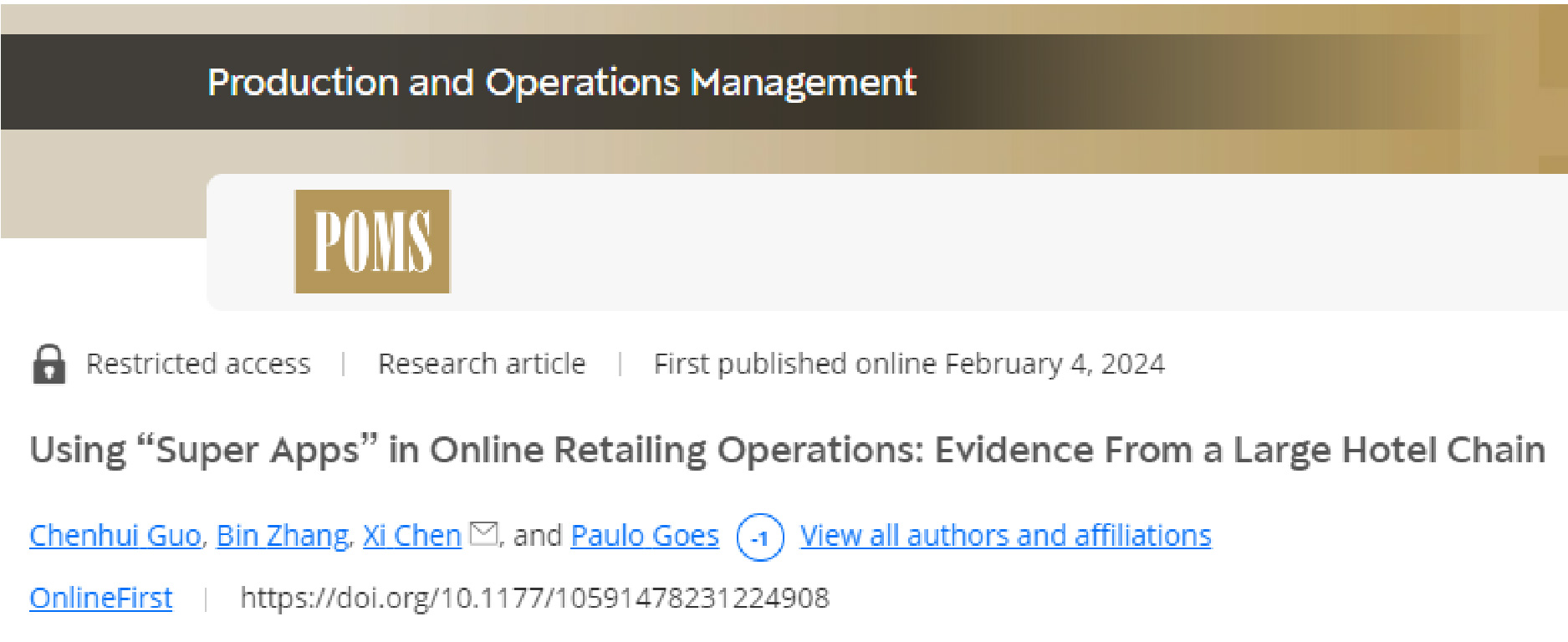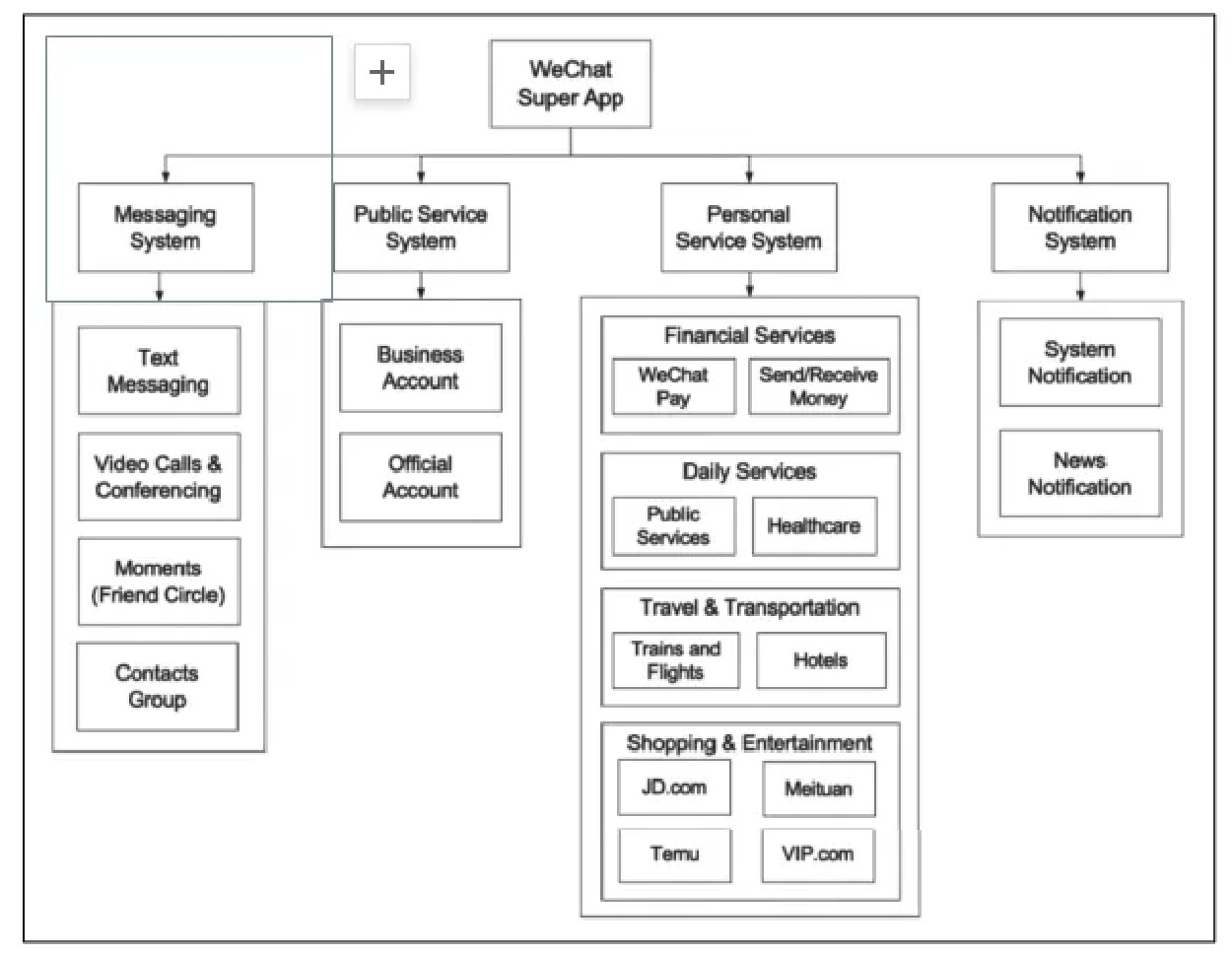In 2022, the entrepreneur Elon Musk took over the social media platform Twitter for 44 billion US dollars and renamed it "X".
When asked about the rationale behind this decision to expand the business into social media, Musk publicly stated that he hopes to develop the "X app" into an all-encompassing super app (the ‘everything app"), i.e. a super app that integrates multiple services and applications on one platform and combines multiple functions such as payment, social media and instant messaging – similar to WeChat, which we have in China.

|
Source: Screengrab from Appstore (Accessed on 2024/09/24) |
The Super App not only supports social media functions, but also offers a new trading platform for third-party companies. Based on this open ecosystem, users can pay directly with their cell phone and get in touch with businesses more directly. In the highly competitive market, companies have increased their investment in super app platforms to gain a larger market share and retain users.
Recently, Facebook and TikTok have also added shopping features to their social media features.
However, even though super-app platforms have gradually become one of the main attractions of the retail market, have companies really achieved a balance between their investment in super-apps and the benefits they ultimately achieve? What interactive impact does the use of super app platforms having on traditional retail platforms? These questions have yet to be fully explored.
Recently, CHEN Xi from the School of Management of Zhejiang University, together with fellow researchers, focused on specific issues in the emerging retail market in the era of digital economy and published their research findings "Using ’Super Apps’ in Online Retailing Operations: Evidence From a Large Hotel Chain" in the leading international journal "Production and Operations Management" (UTD 24).

Click here to access the journal article
This study uses empirical research to clarify the economic value of retail super apps and their impact on customer behavior, and examines how super apps directly affect the economic performance of retail stores through social media features, providing a new perspective for future research.
As an important result of interdisciplinary research on "digital innovation and management", this study also provides theoretical foundations and decision-making tools for companies to formulate effective business strategies on the super app platform and promote sales growth.
|
CHEN Xi | 陈熹 School of Management, Zhejiang University |
||
|
|
||
|
|
|
Academic Background: Professor of the School of Management, Zhejiang University, Director of the Department of Data Science and Management Science and Engineering, School of Management, Zhejiang University, and Qiushi Young Scholar of Zhejiang University. Research directions: Social media, social network analysis, social commerce, etc. You can learn more about Prof. CHEN Xi’s academic background here |
|
Retail Companies Enter the "Super App" - Is It Worth It? |
With the popularity of smartphones, super apps, a type of mobile application that integrates multiple functions, are developing rapidly, especially in the Asian market.
Super apps not only include social media functions, but also integrate e-commerce to create a new ecosystem for retail platforms. Users can enjoy one-stop services on this platform, which greatly improves the convenience of consumption.
WeChat, one of the first super apps, is also the most widely used mobile application. Since its launch in 2011, WeChat has gradually added various business-related functions. To date, WeChat has developed into a comprehensive platform covering almost all aspects of users’ daily life, such as multimedia messaging, social networking, mobile payment, digital marketing, urban services, etc.

|
Image source: ©千库网 |
In the wave of digital transformation, companies have an urgent need for efficient, flexible and cost-effective application development platforms. Super apps, with their powerful functions and excellent performance, have become an important support for the digital transformation of companies.
In China, WeChat has become an important bridge for enterprises to connect with consumers, expand markets and optimize service experience. Through this platform, companies can better target their audiences and provide precise marketing and personalized services. Therefore, studying the role and impact of retail super apps modeled on the WeChat platform has a significant impact on the development and growth of the retail industry.
CHEN Xi’s team focused on the new trend of e-commerce development in social media and found that the impact of the expansion of business on super app platforms on the sales performance of enterprises has not yet been fully explored. In addition, the interaction between new super app platforms and traditional retail platforms still needs to be further researched and analyzed.

|
Image source: ©千库网 |
On the one hand, there is indeed an uncertainty between the resource investment and the expected benefits when companies add retail channels to super apps. So there is no clear answer yet to the question of whether developing new retail models on super-retail platforms is a waste of money or whether sales in the new and old channels will increase.
On the other hand, the e-commerce functions of super apps are in direct competition with other traditional e-commerce platforms of the same company. The use of the super app platforms by customers can lead to two completely different cross-platform effects, which can result in both spillover effects and cannibalization effects, so the cross-platform effects are unclear.
One is the spillover effect, i.e., the advertising and promotion mechanisms of the super app platform spread to other platforms of the company, thus increasing sales on other platforms; the other is the cannibalization effect, i.e., the users of the original platform switch to the new platform because the super app platform offers more convenient access functions.
To further analyze the above problems, CHEN Xi’s team conducted an empirical study on the revenue performance of a large hotel chain after adopting WeChat’s business function, with the aim of studying the impact of super application adoption on the revenue of existing retail platforms. The study particularly focused on whether this emerging platform is a substitute for traditional distribution channels, which may trigger a "cannibalization effect", or whether it can stimulate new market demand as a new distribution channel and achieve a "spillover effect".

|
Image source: ©千库网 |
|
In Order to Understand The Impact of Super Apps on Retail Companies, Researchers Are Focusing on Two Aspects |
Super apps are not only redefining the way retail works, but also bringing unprecedented changes and opportunities for retail businesses. To understand the specific impact of super apps on retail businesses, CHEN Xi’s team summarized the impact in two aspects: Advertising promotion on social media and mobile convenience.
On the one hand, the social media advertising function of super apps has added important weight to the competition of enterprises in the emerging retail industry. With the help of this platform, companies can not only alleviate customers’ concerns about privacy and information security, but also establish more direct connections and maintain long-term and stable relationships with customers.
At the same time, the platform enables companies to capture customers’ attention through precise push measures, personalized ads and online communities, build emotional connections with customers and promote brand loyalty.

|
Image source: ©千库网 |
On the other hand, the mobile convenience of super apps is one of the important reasons why they are so popular in the emerging retail sector. The platform’s location-based services, QR codes and Near Field Communications (NFC) applications break the boundaries of consumption scenarios and allow users to conveniently consume anytime, anywhere. The convenience of mobile payments and reduced transaction time allows merchants to save on accounting and cash receipt storage costs while increasing sales.
From the above perspectives, we can better understand the impact of super apps on businesses’ operating models and sales efficiency. As a result, we gain a deeper understanding of the interactive impact of super apps on companies and platforms, and obtain theoretical guidance for retail companies to optimize their operational strategies.
|
Research Shows That Super Apps Not Only Boost Sales on Their Own Platforms, But Can Also Help Other Channels to Generate More Revenue |
To analyze the operating strategies and performance of companies on super apps in more detail, the study takes a large hotel chain operating in more than 320 cities in China as an example.
In 2022, the company operated a chain of 2,600 hotels with more than 360,000 rooms and 150 million registered guests. The company set up a business account on WeChat in 2013 and uses the super app as a new retail platform. On this platform, customers need to subscribe to the hotel’s official WeChat account (or use the mini program) to browse product information and then book hotel rooms.

|
WeChat Super App architecture and main modules (Image source: The research paper) |
CHEN Xi’s team analyzed the purchasing behavior of customers after using super apps and investigated the following questions: (1) How does the use of super apps affect overall demand? (2) Does the introduction of super apps lead to spillover or cannibalization effects on the demand for existing platforms? (3) How do the spillover or cannibalization effects differ between existing online and offline platforms?
After a series of empirical analyzes and hypothesis tests, the study found that after the launch of the WeChat app, customers’ hotel room bookings increased significantly, by an average of 0.54 to 0.61 bookings per month, representing an increase of 105.2% and 147.4%, respectively. In addition, the number of bookings on other platforms also increased significantly, indicating a spillover effect rather than a cannibalization effect. This shows that the introduction of super apps not only increases sales on their own platforms, but also improves the performance of other sales channels.
|
- This study by CHEN Xi’s team provides empirical evidence of the economic value of super apps as retail platforms. It also provides market insights and strategic guidance for companies to increase revenue and market share through super apps in a highly competitive market and further promote the integrated development of online and offline.
- You can read the original article in Chinese here